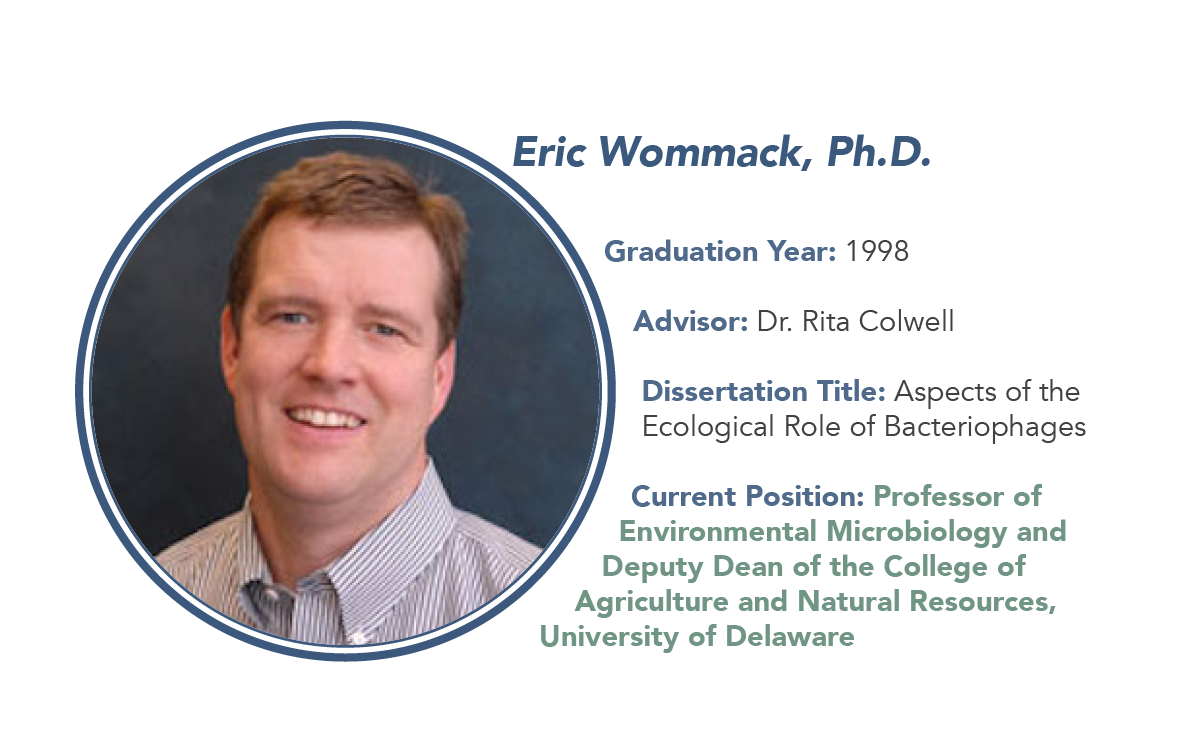Alum Spotlight: Dr. Eric Wommack

At IMET, we hope to prepare graduate students for a wide range of careers, including in academia, industry, entrepreneurship, and government. Working and studying at a university, students are exposed to the world of academia. The REEF program has helped students to envision and explore a career in entrepreneurship. In this edition, alumnus Eric Wommack shares his experience entering academia.
When Dr. Eric Wommack graduated with a Ph.D., he had a pretty good sense that he wanted to be in academia. “The most attractive thing was that I would get to do the research that I was most interested in,” he said.
As a Professor of Environmental Microbiology at the University of Delaware, Wommack has been able to follow his research interests, studying the ecology of viruses, particularly those that infect microbes. He researches these viruses across a broad range of ecosystems - from deep sea hydrothermal vents to plant roots to the human microbiome. Since microbes and viruses are everywhere, it’s particularly important to understand how they influence ecosystems.
Working in academia, Wommack has also picked up some skills outside his research and taken on a variety of responsibilities. “The biggest surprise is how diverse the job is,” he said. “The job description for a professor would probably be 4-5 pages long.” For Wommack, just a few of the things on the job description would be: advising students, writing grant proposals, and helping other faculty advance their research in his role as the Deputy Dean of the College of Agriculture and Natural Resources. These responsibilities can take time away from the lab, but it’s also exciting to contribute to the university in a variety of ways.
Wommack said it’s a lot of on-the-job training for those skills that he may not have learned as a Ph.D. student. Nevertheless, he encourages graduate students to seek out opportunities to write grant proposals and to mentor younger students. Those experiences can give students a sense of whether they want to take on the many roles of an academic. Also, he said, “Watching your students grow as researchers and scientists is incredibly rewarding.” This is true for graduate students mentoring younger students and for professors with their advisees.
In addition to taking opportunities to write grant proposals and provide mentorship, students should go to meetings and conferences frequently, Wommack said. He shared one experience where he considered a postdoc in industry. “I got an interview at DuPont because I met someone who was looking at my poster at ASM. I asked if there were opportunities there and he wound up contacting me for an interview for a postdoc.” While Wommack ended up not pursuing this opportunity, he emphasized the importance of making connections and asking about job opportunities at conferences and meetings.